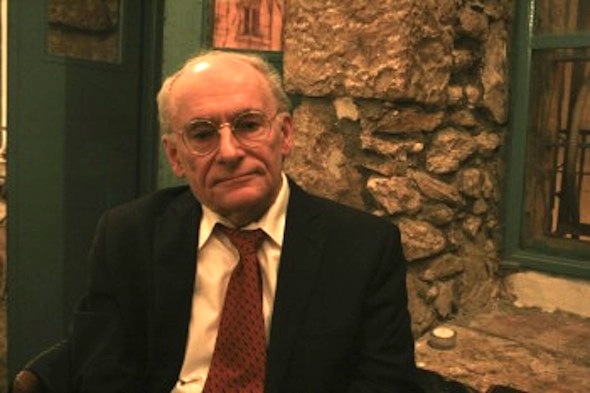On a Mission to Stop Organ Harvesting
The Epoch Times
Genevieve Belmaker
Epoch Times Contributor

During a recent interview with Canadian attorney David Matas about his new book on organ harvesting in China, I noticed something: he is an incredibly busy guy. During a very short trip to Jerusalem (less than 2 days), he made time to step out from his hotel so I could quiz him. On the way to the cafe where we talked, he bought a gift for his nephew. This penchant for multitasking seems typical. He is constantly moving, constantly working, constantly thinking about what to do next. And being a human rights activist is a side gig for him. I can only imagine what he’d accomplish if he was at it full time.
“Even when I’m in meetings, I’m always checking emails,” Matas told me when I asked about how he keeps up with having his hand in so many different things.
In 2009, Matas co-authored the book “Bloody Harvest: Organ Harvesting of Falun Gong Practitioners in China.” Just a couple of months ago, he published a second book, which he co-edited, entitled “State Organs: Transplant Abuse in China.” His second book is a collection of essays by contributors, including transplant doctors, from four continents.
When it comes to organ harvesting, he has good reason to be so bent on staying in constant contact.
According to research done by the Falun Dafa Information Center (FDIC), of the tens of thousands of organ transplants performed in China annually, records of voluntary donations only number in the hundreds. It is impossible to think of it as anything but a serious ethical betrayal by doctors, and a crime against humanity.
Chinese government claims that organs for heart, kidney, and liver transplants come from executed prisoners have been met with increasing skepticism since 2006. Steadily emerging evidence suggests that most of these organs have come from prisoners murdered solely for the monetary value of their organs. Many murdered are Falun Gong practitioners, the largest group of prisoners of conscience in the world.
Slowly but surely, the U.S. government is starting to pay attention. In 2011, the U.S. State Department said in its annual Human Rights Report that: “Overseas and domestic media and advocacy groups continued to report instances of organ harvesting, particularly from Falun Gong practitioners and Uighurs.”
For Matas, who used to be a fixture at hearings and events on the issue following the 2009 publication of his book, he is relieved others are getting more involved.
“It has to be more than just me talking about it,” he said, adding that he did not join a Sept. 17 House hearing on the issue, so others could be at center stage. Matas’ hope that the issue will gain more traction and momentum seems to be coming to fruition.
On Oct. 3, 106 members of Congress sent Secretary of State Clinton a letter asking for the release of information about transplant abuses in China that the U.S. government may possess. The request was sparked by reports that former Chongqing city deputy mayor Wang Lijun transmitted details about organ harvesting during a 24-hour stay in an American consulate in China in February.
Matas says there are many things that individuals can do as well.
“Write a letter, go to a rally,” he says. “Do what you can.”
